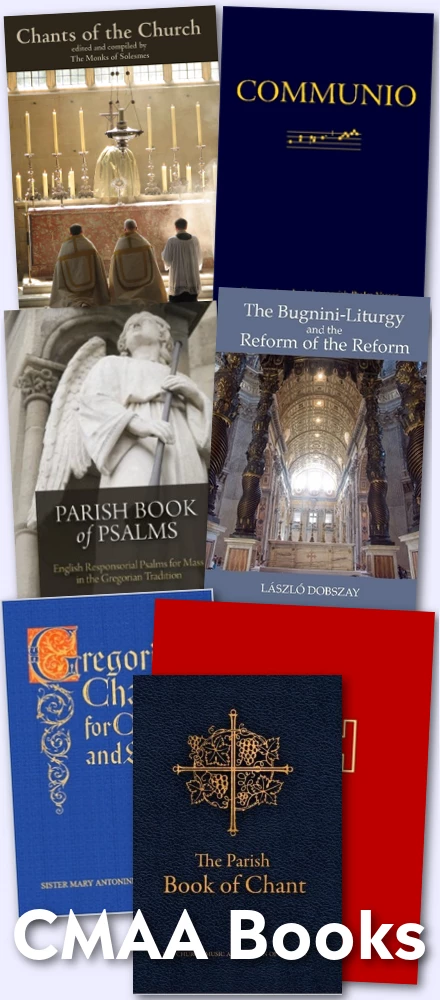One of the issues that I am continuously trying to drive home is the importance of the liturgy. One of the symptoms (and causes) of our liturgical crisis today is that it is precisely misunderstood as something of lesser importance; or that to be concerned with it is somehow to manifest a mere externalism or even legalism akin to the Pharisees. Such is possible of course, because like any good thing, there can be distortions. That does not make a good thing to not be a good thing, without importance, or impossible to focus upon properly.
To be genuinely and properly concerned about the liturgy is to see and understand its objective nature, purpose and its sanctifying power. It is to see and understand the necessity of the worship of God within the context of our incarnated nature. We are people of flesh and blood, not merely intellects. We are both and the "heart" is often the first stage in moving the intellect, which in turn moves us in our practice and disposition toward God and our fellow creatures. The heart and mind are intimately related and so too are the external practices, ceremonies and symbols of our faith intimately connected, as both a sign and a bridge, to our own interior approach to God and our own conversion. Mother Angelica of EWTN used to speak of "holy reminders" and the liturgy is the ultimate of holy reminders; it is that and much, much more. It is that upon which Christ comes upon our altars; it is that upon which that sacrifice, our salvation, is offered in perpetuity to God the Father in worship; it is that from which all the Church's power flows. It is that wherein we are both active and passive. Worshipping and being sanctified. Being instructed and formed in our Faith and proclaiming it and forming others through these sacred rites.
To be a Christian, I would propose, is not to set aside the liturgy or even its external forms as unimportant. It is rather to embrace the liturgy as fundamentally important, being a gift of the Lord and work of the Holy Spirit through the centuries which brings us into contact with the Divine Trinity, both objectively in the sacrament of the Eucharist come down upon the altars, mystically in union with the heavenly liturgy, and interiorly in our disposition. It is the gift of that which sanctifies time and brings us ever into contact with and meditation upon the Divine mysteries of our salvation. When we fast on a fast day, or feast on a feast day, or pray before an icon of a particular saint day or feast day, we extend the liturgy to our day to day life just as the monk or nun takes the fruits of their liturgical life (the Mass and Office) and extends that into each and every aspect of their day; be it intellectual exercise, Lectio Divina, private prayer or manual labour. Time continues to be sanctified and it is shaped by the liturgical season; by the psalms, prayers, or ceremonies of that liturgical day. It is inspired by the customs and ceremonies which extend us beyond the mundane and into the realm of the supernatural and mystical.
Christ has Risen. This is a matter of our Faith, spoken of in the scriptures, in the Creed and is a central tenet of our Faith. So why do we yet fast on Good Friday? Why do we liturgically live the Passion and Death of Christ as though we were somehow yet uncertain as to the outcome, as the doubting apostles did while hiding away for three days thereafter? We do so not because we too doubt the outcome, but because the Church understands the precise need to recollect ourselves to these divine mysteries. To stir our souls to the mysteries of our salvation; to stir us to worship, to penance and adoration; moving us deeper into interior movement by means of liturgical practice.
So it is that not only the liturgy itself, but even the various liturgical forms, practices and customs which characterize the liturgy have an important role to play in bridging us to the Divine mysteries. They recollect us, stir us and teach us. These external dimensions of the liturgy are an important medium, a gateway if you will, through which the objective supernatural realities are manifest and the Faith is imparted. It is the universal catechism of layman and priest alike. As such, these externals aspects aren't therefore dismissable as unimportant (or written off as radically subjective) for even while they are not dogmatic of themselves, they are the mortar which cement together the bricks and help give them added strength and surety.
This is why these questions matter and why it is not an unimportant field of focus or inquiry. The proverbial dots must connected so that we may understand that when we have the rightful sentiment that we must focus upon Christ, upon the Faith and Morals of the Church, that we must naturally conclude that we must therefore focus also upon the sacred liturgy which is the centre of our lived Christian Faith and which moves us toward the Holy Trinity, and which should inspire us and form every aspect of our day to day life.




















